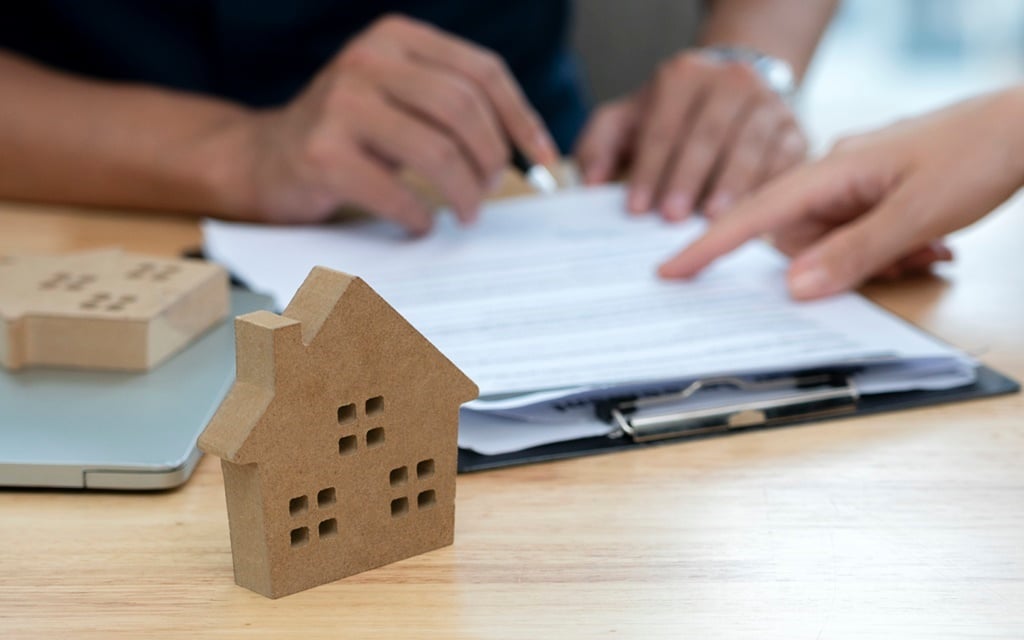
The steep interest rate hiking cycle by the SA Reserve Bank and elevated inflation have eroded affordability, making it difficult for buyers to save enough for a down payment on a home - and more are turning to unsecured lending as a source.
Unsecured credit - like short-term loans and credit cards - means the borrower does not have any asset to offer as security in exchange for the loan. Therefore, the risk for the lender is much higher than secured credit and the lender requires a higher interest rate.
In January, the SARB increased its benchmark repo rate by 25 basis points to 7.25%, leading to the prime lending rate now being 10.75%. This was the eighth hike since November 2021. As affordability becomes more stretched, FNB expects home-buying activity to decrease in the coming months.
The reliance by first-time home buyers on unsecured credit as a primary source for a down payment is on the rise, according to Siphamandla Mkhwanazi, senior economist at FNB.
FNB research shows that just 1% of first-time home buyers relied on unsecured credit as a primary source to fund deposits in the first quarter of 2021. This increased to 5% by the fourth quarter of 2022.
"The general usage of unsecured credit facilities might be much more widespread, as we limited our analysis to primary sources. Overall, the trend aligns with data from the SA Reserve Bank, which shows that consumers are now accumulating unsecured credit faster than asset-backed credit," says Mkhwanazi.
"Furthermore, reliance on own savings is dwindling. This aligns with depleting household savings as shown by SARB's data, which may have pushed prospective buyers to look for alternative sources to fund deposits."
Due to ongoing interest rate hikes as well as the spiralling cost of living and high fuel prices, more people are looking to borrow money over and above their mortgages. This is to cover not only deposits to buy a property but often also other associated costs, says Cobus Odendaal, CEO of Lew Geffen Sotheby's International Realty in Johannesburg and Randburg.
For instance, even if you buy a home for R1 million, which incurs no transfer fees, you are looking at additional costs of around R14 000 for legal fees and other related costs. Banks will only lend money or approve bonds if buyers can afford the associated costs. "At the moment, most of our first-time buyers are qualifying for a 100% bond, but if they buy property for more than R2 million, then the associated costs, including transfer fees, skyrocket and are more than R40 000," says Odendaal.
"Many are taking personal or unsecured loans, but we have yet to encounter any buyers who have raised money through unscrupulous lenders. We do try to talk them out of taking additional loans over and above the bond as it can negatively influence future affordability as well as their credit rating down the line."
Although BetterBond cannot comment on unsecured lending among first-time buyers, CEO Carl Coetzee says it is a misperception that first-time buyers can only buy a home if they have a deposit.
"While putting down a deposit will lower the monthly home loan repayment amount and therefore the interest payable over the full term of a home loan, the big banks and lenders offer loan products that provide loans of as much as 110% for applicants who meet their lending criteria. Apart from covering other costs, this makes it possible to buy a home without having saved for a deposit," says Coetzee.
Buying for a purchase price of less than R1 million will save first-time buyers from paying costly transfer duties. Those with a household income of between R3 501 and R22 000 could also qualify for a Finance Linked Individual Subsidy Programme (FLISP), depending on the make-up of their household and their circumstances.
The latest data from ooba shows that in the fourth quarter of 2022, home loan application volumes were down by 17% compared to the fourth quarter of 2021. The average purchase price in the fourth quarter of 2022 was R1 422 992 - a 1.5% increase compared to the third quarter and a 2.4% year-on-year increase.
Demand from first-time homebuyers varied significantly across regional housing markets – from 42.5% of applications in the Western Cape to 62.1% in the Free State.
The average deposit size was up by 23% year-on-year, from 7% of the average purchase price in the fourth quarter of 2021, to 8.6% in the fourth quarter of 2022.


